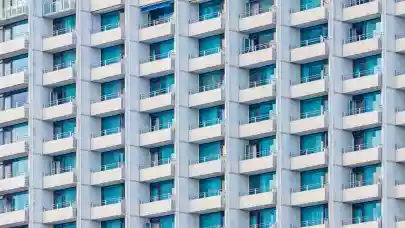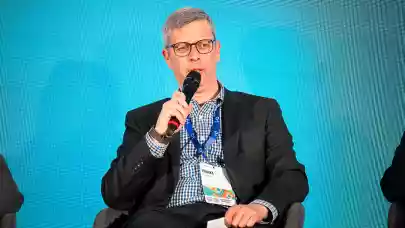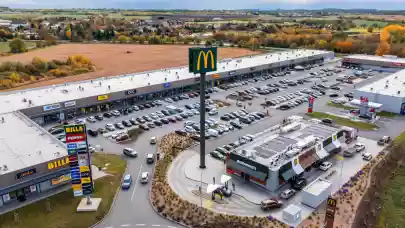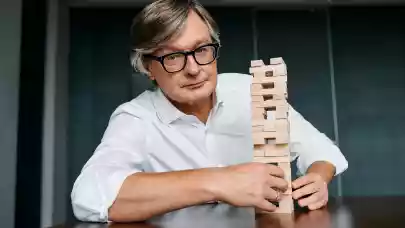
Dariusz Grzeszczak, CEO of Erbud, one of the largest construction groups in Poland talked to Property Forum about new contracts under pandemic-related circumstances, the situation on the labour market and the future of wooden modular construction.
The year 2020 was a breakthrough year for Erbud in terms of net profits. The COVID-19 pandemic has not hampered your business in any way?
It might sound selfish to say that it has been a good year. For the world, it has not been a happy one - we still have a high disease rate, and for the rest of our lives we will have images of rows of coffins in Bergamo or of the Diamond Princess sailing from port to port. It has affected many industries - tourism has come to a standstill, the events industry will be recovering for many years to come, restaurateurs are still licking their wounds. The construction industry held its breath in the spring of last year, but in the end, the pandemic dealt with us rather gently. Constructions did not stop, we achieved impressive results and our order portfolio is now bursting at the seams. We generated PLN 50.5 million in net profit, 51% more than the year before.
Construction companies in Poland have been heavily dependent on Ukrainian labour in recent years, therefore the pandemic has caused major problems for them in maintaining continuity of work. What is your opinion on the current labour market situation?
The workforce, which was difficult to recruit before the pandemic, remains scarce in the market. For example, the number of applicants is sometimes in the double digits at most for specialists in electrical and sanitary installations, while normally there are more than a hundred applications for other jobs. As far as workers from the East are concerned - of course, the whole construction industry has been using them for some time now, as well as other industries. They are hard-working people, great specialists, although sometimes it takes them longer to learn the rules of health and safety at work, which are much higher in the EU than in their home countries. We have not employed many of them at Erbud, therefore the problem affects our subcontractors more. And they do not report to us that there are significant problems in finding workers.
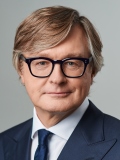
Dariusz Grzeszczak
CEO
Erbud
Erbud is developing the production of large wooden modules for the construction of major commercial and public buildings. Could you elaborate on this?
Just as we are witnessing an ecological revolution in the automotive industry, we are also starting to look for more and more ecological solutions in the construction industry. One such solution is wooden modular construction. Wood is virtually the only renewable building material. We plant the trees, then cut them and build with them. Plant again, cut again, build again and so on. The modules themselves are recyclable and wood is infinite. As long as there is sun and air, trees will grow too. Anything can be built from these modules - a hospital, a hotel, a town hall, a school. But most importantly, they can be easily rebuilt and adapted for other uses. Today we may build an office building, but if tomorrow there will be - knock on wood - another pandemic, this modular construction material can easily be transformed into another building, for example, a hospital. The European Union will promote ecological solutions in the coming years. We already purchased a plot of land for a factory and we are buying a production line. We are launching in the middle of next year, the first stage will generate the potential of PLN 500 million in annual revenues, and the next two stages of development will add another PLN 500 million each. As a result, in 5-7 years, “modules” will be one of the four foundations of the group.
There are plans to produce these wooden modules on the German market. Competition may be fierce...
We are very experienced in the German market - our Düsseldorf-based company GWI is active there, in 2018 we bought the service company IVT in Oberhausen, and in fact, we are looking around for further acquisitions. Germany is a natural direction for us to expand, we feel comfortable there, and already have a complete team of professionals experienced in that market. And the competition? It has a mobilising effect on us.
Office and retail projects have been most affected by the pandemic. Do you expect to have fewer contracts in these industries over the coming years?
We are observing a slowdown in these segments but it is very difficult to predict what will happen, if and how quickly employees will return to the offices. But I think the market will rebound next year and we expect to sign more contracts in these areas.
What about the housing market? Developers cannot complain about a lack of demand for their residential product...
They cannot complain and neither can we. We are signing new contracts and our projects are not at risk, because Poles have gone on a shopping spree and are buying flats as never before. As a construction company, we are very enthusiastic about this, although, in the long term, the share of the building industry in our order portfolio is likely to decrease. Nowadays we are mainly developing in the RES (Renewable Energy Source) segment - our company ONDE is currently a leader in the construction of photovoltaic and wind farms. We are growing in industrial services and are launching ecological modular construction. We have always focused on segmental diversification and today we are reaping the first benefits from this.
